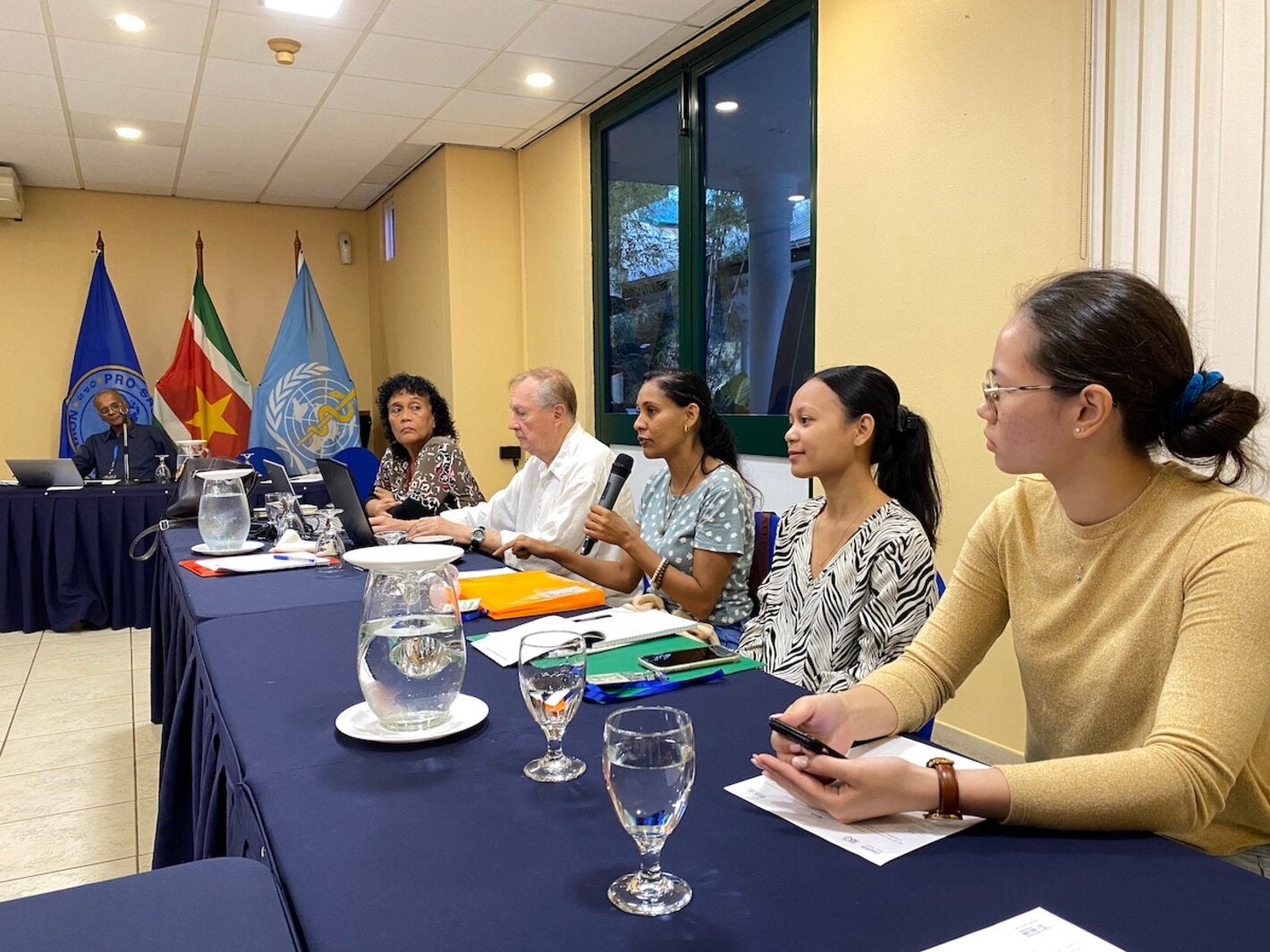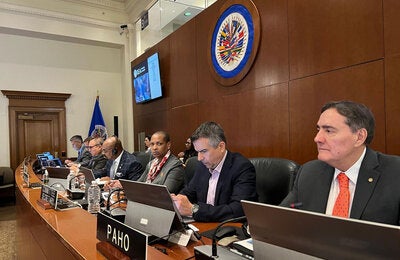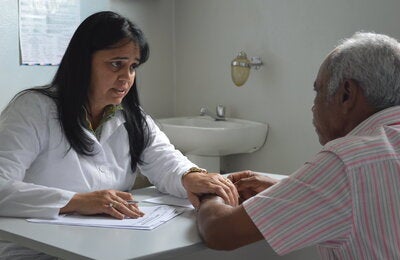
Suriname, June 19, 2023 (PAHO/WHO) – In response to a request from the Ministry of Health (MoH) in December 2022, the Pan American Health Organization/World Health Organization (PAHO/WHO) has partnered with the MoH to carry out a comprehensive evaluation of the National Immunization Program (NIP) in Suriname. This evaluation aims to assess the program's performance, identify areas for improvement, and develop feasible working plans to enhance its effectiveness.
The MoH in Suriname has established a National Working Group (NWG) to provide guidance and support for the 2023 National Evaluation of the National Immunization Program (NIP). The NWG plays a crucial role in facilitating the organization and implementation of the evaluation activities. As the primary counterpart, the NWG collaborated closely with PAHO's external evaluation team to plan and execute the evaluation process effectively. This collaboration ensures a coordinated and comprehensive approach to evaluating the NIP, ultimately leading to evidence-based recommendations for improving immunization services in Suriname.
From June 6 to June 15, 2023, a series of field assessment activities aimed at evaluating the National Immunization Program were conducted.
During the evaluation period, PAHO and Ministry of Health staff members conducted site visits to 20 clinics, these were selected for visiting and administering the evaluation questionnaire. The selected clinics were 6 clinics in the rural areas managed by Medical Mission and 14 clinics managed by the Regional Health Department (RGD) which are located in the more densely urban areas and account for 70% of the population in Suriname.
These visits served as a vital component of the evaluation process, allowing the assessment team to closely observe and understand the operations, infrastructure, and resources available at each clinic. The clinics visited were strategically chosen to represent different regions within Suriname, ensuring a comprehensive assessment of the National Immunization Program's implementation.
Furthermore, PAHO and Ministry of Health representatives conducted interviews with clinic staff members to gather insights into the day-to-day challenges and successes faced by healthcare professionals involved in the immunization program. These discussions provided valuable perspectives on issues such as vaccine supply, training needs, and service delivery mechanisms, which will inform future interventions and policy decisions.
In addition to site visits and interviews, in each community three household surveys were conducted as part of the evaluation process. These surveys aimed to gather specific information related to the immunization program. The Clinic Questionnaire focused on eight key areas for review and evaluation, including programmatic priority, the impact of the COVID-19 pandemic on program operations, planning and management, injection safety, human resource management, program information and surveillance, cold chain and supply management, and training management.
On June 16, an Evaluation Field Assessment Presentation was held and the presentation was officially opened by the PAHO/WHO Representative Dr. Lilian Reneau-Vernon. The presentation provided an overview of the field work conducted during the assessment period and a short summary of the experiences encountered. PAHO technical officer, Dr. Julia Terborg, PAHO Consultant Mr. Peter Carrasco, and Mr Prim Ritoe shared valuable insights gained from the site visits, interviews, and household surveys, highlighting key findings and observations.
The presentation also included a brief summary on the clinics visited, showcasing the strengths and areas for improvement identified in each facility, and emphasized the importance of clinic-level interventions and strategies to enhance the delivery and accessibility of immunization services across Suriname.
The findings from these surveys will enable a comprehensive understanding of the community's perception of immunization, helping to identify potential barriers and opportunities for improved vaccine coverage.
The collaboration between PAHO/WHO and the Ministry of Health Suriname underscores the commitment to strengthening immunization services and achieving optimal health outcomes in the country. The evaluation of the National Immunization Program will yield essential data and insights that will guide future interventions and policies, ensuring that Suriname continues to provide high-quality immunization services to its population.
PAHO/WHO remains dedicated to supporting member countries in their efforts to improve health systems, enhance immunization coverage, and protect communities against vaccine-preventable diseases. The results of the field assessment will be analyzed from June 19 – July 28, 2023, and recommendations for strengthening the National Immunization Program will be shared with the Ministry of Health Suriname to inform evidence-based decision-making and drive progress towards achieving universal immunization coverage.




